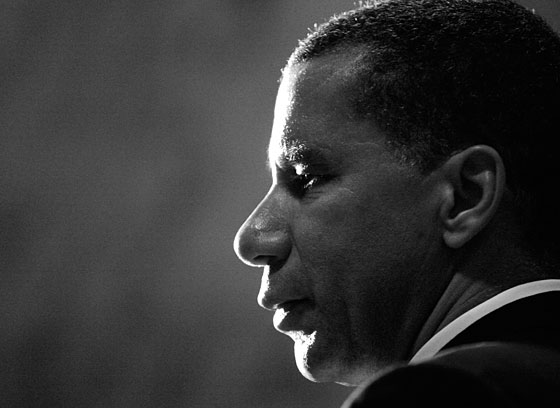
It’s impossible to know what Andrew Cuomo was thinking when the call came from David Paterson late last Wednesday night to investigate the current governor’s involvement in a domestic-abuse case. Cuomo continues to dodge any remotely political questions.
But the ramifications of that sudden phone call were clear: He will now be the next governor of New York.
With all due respect to Republican Rick Lazio, Cuomo was a near lock to be elected this November even before Paterson imploded, with the help of his body man and the reporting of the New York Times. But the scandalous, embarrassing way in which Paterson met his political demise—coming on top of three years of nearly nonstop Albany scandal and embarrassment—is likely to make Cuomo’s life harder after it makes it easier.
On the immediate political level, Paterson’s withdrawal from the governor’s race is a gift to Cuomo. Paterson had terrible poll numbers, anemic campaign funding, and a lousy record in office. Yet his determination could have made for an awkward, racially charged primary. That inconvenience is now gone.
Paterson’s exit also provides more time for Cuomo to play the inside game of solidifying the support he’ll need to govern. “It gives him an opportunity to establish himself as the party’s leader and develop a consensus for the way things need to go, for making changes in the way Albany does business,” says a Cuomo associate. “He now has a chance to arrive in the job with real buy-in from the other players.”
But it also presents Cuomo with serious risks: As soon as the current Paterson frenzy fades, all eyes, particularly those of the media, will turn to him. “He’s going to continue to try to answer the questions from 10,000 feet, and talk in generalities about competence and ‘doing the people’s business,’ ” says a Democratic strategist. “But the pressure will get very heavy on him.”
Four years ago, a Democrat promising to change Albany was elected governor with a huge mandate. Things didn’t quite work out for Eliot Spitzer. Cuomo’s team thinks it knows why. “Eliot was the imperial one who was going to make everyone bow,” an adviser says. “That wasn’t likely to be successful, even before his scandals. I don’t think it’s the A.G.’s inclination to take the ‘bash Albany’ approach.” The danger of playing nice, and of getting “buy-in” from Albany’s other powers, is that Cuomo arrives bought by the very same special interests that have clogged the capital for years. His challenge, as governor-in-waiting, is to lay out an agenda for significant change at the same time he reassures legislators that he’ll provide the collegial leadership they crave.
“People don’t expect miracles,” says the Cuomo adviser. “The threshold is now so low that any sign of adults being back in charge will be greeted with enormous relief.” Perhaps. But the fundamental problem of massive budget deficits hasn’t changed; depending on the fall elections, the State Senate could get even more chaotic. Voters are in a foul mood this year, and after the recent fiascoes they’re likely to demand a whole lot more from Governor Andrew Cuomo than simply being able to stay out of trouble. How he uses these next months will determine whether Paterson’s early exit sets him up for success—or sets a trap.
Have good intel? Send tips to [email protected].